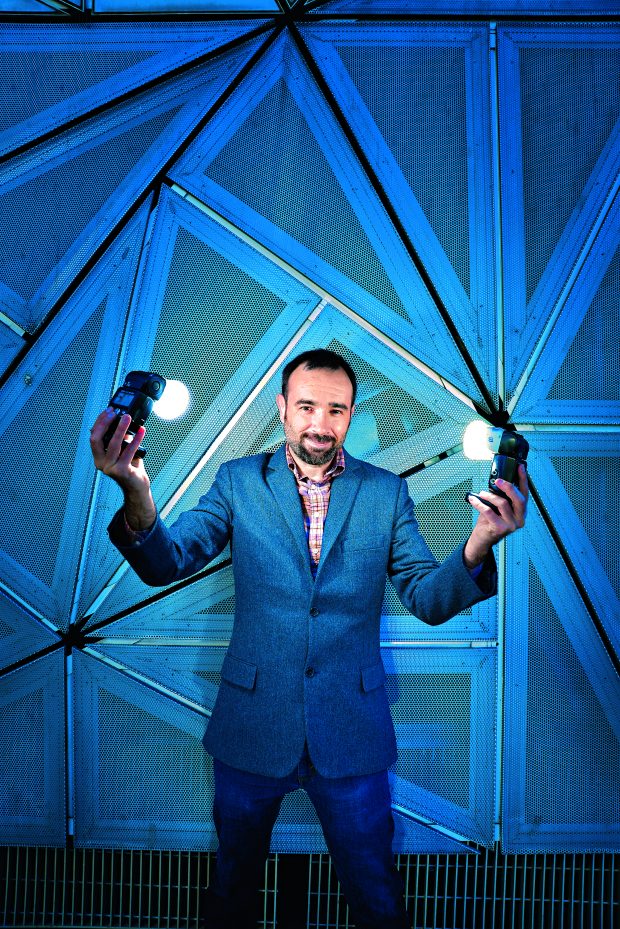The filmmaker
Australian filmmaker Sam Voutas released his film Red Light Revolution in the UK in 2012, and just one week later its pirated copy began to appear on the streets of Beijing.
“Not only was it pirated but the people who stole it did their own really unique artwork, with their own imaginary credits,” Voutas recalls. “They even marketed it with film stars who weren’t in our movie.”
Voutas (BCA 2000, International House) took action: he knew he could either get angry or turn the experience into something positive. The result is his new film, King of Peking, which featured in this year’s Melbourne International Film Festival, and was made in China.
Set in 1998, it tells the story of a travelling film projectionist who starts an underground career as a movie pirate in order to support his son. Much of the film focusses on the relationship between father and son and the idea that some people “make the wrong choices for the right reasons”.
“It’s also about fighting the system,” Voutas says. “And even though it is in Chinese, it has a lot of that ‘Aussie battler’ feeling — that there is a way to make things work.”
Voutas, who studied at the Victorian College of the Arts, has lived in Los Angeles for the past five years, but spent the eight previous years in China, where he also spent some of his childhood. With all this experience he was well equipped to embark on the film, shot in a province near Beijing with access to towns and lesser-populated areas.
“Beijing has changed so much that we couldn’t shoot an historical movie there because none of the old architecture remains. We wanted the flavour of places like an old amusement park, or a pool parlour.”
Voutas first envisaged his career as being in theatre. He loved the degree he did at the University’s School of Studies in Creative Arts, as it was then known, taught in the building on the corner of Swanston and Grattan streets, and had “some inspiring lecturers” who opened up the world of film to him.
“It was an open sort of degree, and I didn’t have to decide a direction. I did all sorts of subjects.”
Film began to entrance him, though, especially when he began using an old Steenbeck video-editing machine. “I well remember splicing and taping and watching films in a tiny room in that building,” he recalls.
During that period, there was much talk about the many low-budget independent films that were making it big on the festival circuits, and Voutas began to think he had a chance.
“We felt we could actually do this, too. It set me on that trajectory. Little did we know the market would change so phenomenally in 20 years, so that now, if you have a $2000 movie, your chances of getting into a big festival are much less.”
At the VCA, he made short films with friends, and then began entering them in festivals. “That gave me more confidence to keep going.” Now, he has made it to MIFF and other major festivals. It has, he says, been well worth persisting.
By Andrew Stephens (BFineArts 1994, PGDipArts(ArtHist&ClinSt) 2001).



